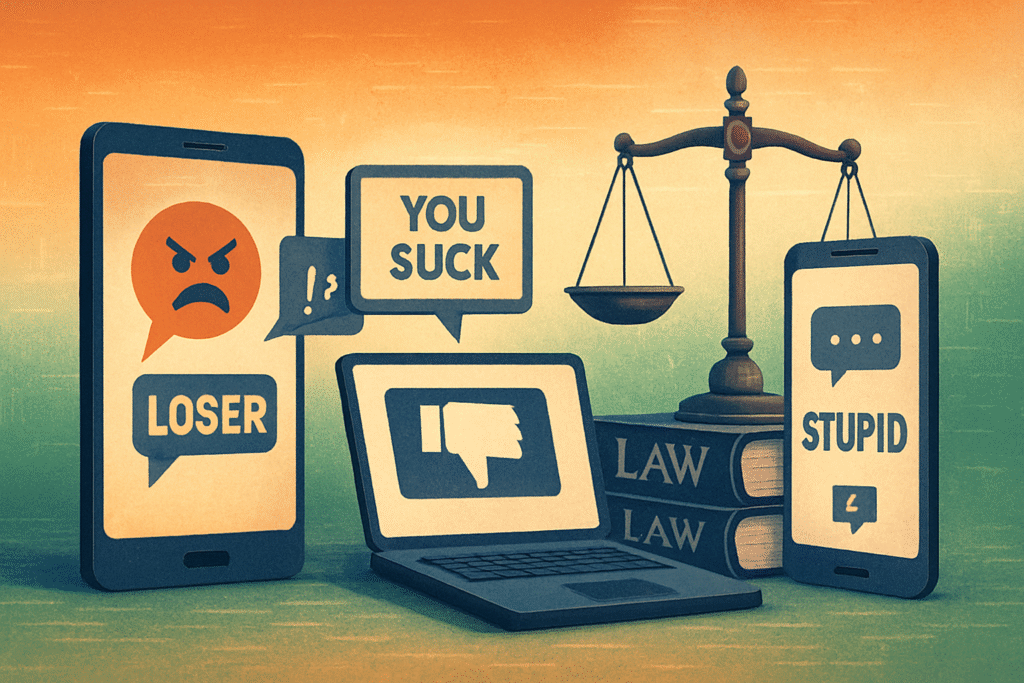Published On: October 10th 2025
Authored By: Manasi Pangaonkar
DES Shri Navalmal Firodia Law College
Abstract-
India is a diverse country, and this diversity extends to its various religions. Each religion has its own set of rules and regulations, which is referred to as a ‘Personal Law’ of that religion. These personal laws are found in the traditions and customs practiced by the people, their holy books, and the knowledge passed on over many generations by the leaders of that religion. Since these laws are so different, they affect the legal system of India and also marriage, divorce, inheritance, and adoption in each religious community. The Uniform Civil Code aims to create one law for all religions to promote equality, maintain balance, and uniformity, and to uphold unity in India. The issue is whether the Uniform Civil Code considers religious freedom and the sentiments of people, and if it does, will society accept it and follow it? This article discusses the legal and social implications of the Uniform Civil Code, and also points out challenges that could come forth if it were ever made effective.
Introduction-
The Uniform Civil Code refers to a set of civil laws that are applicable to the people of all religions. It replaces personal laws relating to marriage, divorce, adoption, inheritance, maintenance, alimony, and succession. Currently, all Indian citizens are governed by the laws of their respective religion. Part IV of the Indian Constitution mentions the ‘Directive Principles of State Policy’ in which Article provides for the application of the Uniform Civil Code for all citizens of India. It says that the State shall endeavour to secure a Uniform Civil Code for the citizens of India, throughout the territory of India. This is a popular debate topic because citizens question whether the law should be uniform for upholding equality, or whether the differences should be respected as they are customs and traditions. The Uniform Civil Code will bring gender justice and equality in the legal system and laws, but it should be implemented while keeping religious and cultural diversity in mind and aligning it with constitutional values and ideas. This is a crucial reform that is difficult to achieve due to the diversity. Let us further discuss the social and legal implications of the Uniform Civil Code.
Need for Uniform Civil Code-
The need for a Uniform Civil Code is highlighted by the Court multiple times. It is a requirement to advance gender justice in India and reduce discrimination among parties in cases of marriage, divorce, adoption, succession, and inheritance. Current debates happening around maintenance and alimony also state that there are no equal laws in the country for the same. The customs practiced in the country in the name of religion sometimes harm individuals and have a crucial impact on social progress. For example, the exchange of dowry during marriage, despite properly enforced dowry prohibition laws. UCC would simplify all the laws in personal matters and put forth a simplistic approach in dealing with the injustice happening in these matters. Implementation of it would ensure that the laws are evolving as per social requirements and progress, which foster individual liberty.
Historical Background and Framework of Personal Laws-
Before India’s independence, there were no comprehensive, codified laws. The British rulers avoided interfering with the personal laws of religions, as this would have caused uproar among the citizens and led to riots and protests. During the making of the Indian Constitution, Article 44 was added, but no initiatives were taken to enforce it. It was always assumed that, given the religious diversity of the country, the citizens would not be willing to sacrifice their faith in such matters. So, the Uniform Civil Code was enshrined in the Directive Principles of State Policy, instead of Fundamental Rights.
In the case of Shah Bano Begum (1985), the court observed that it was the responsibility of the state to create and enforce a Uniform Civil Code for the citizens, and although it is difficult to do so, a start must be made somewhere. Until such a code has been enforced, the courts should step in to reduce the injustice happening in personal laws. Again, in the case of Sarla Mudgal vs Union of India, the necessity of UCC was urged by the honorable court. It was highlighted that it was crucial to protect the people who are oppressed due to personal laws and to reduce injustice in such matters. It was suggested by the court that the Law Commission and the Minorities Commission should try and frame a law to curb this inequality. The need for UCC was repeatedly highlighted through various judicial decisions.
India currently follows a pluralistic system in personal religious matters. Each religion has its law, which is different than others. Hindus, Buddhists, Jains, and Sikhs are governed by the Hindu Marriage Act 1955 and the Hindu Succession Act 1956. Muslims have their own Sharia law, which is uncodified. In many cases, Shia Muslims and Sunni Muslims have different rules and regulations. Christians and Parsis have their own marriage and divorce acts. Such differences in laws lead to different divorce grounds, unequal property rights, and varied adoption and inheritance situations. It reflects that the citizens of India do not have equal rights due to differences in the laws that they are governed by in such civil matters.
Legal Implications of UCC-
Implementing the Uniform Civil Code in India will have a major impact on the legal system while also bringing forth a number of challenges.
A single code to deal with all civil personal matters will remove the pluralistic laws that currently exist. Such a reform will ensure that all citizens of India are treated equally before the law and get equal rights in all matters. This will encourage gender justice by ending the discrimination in matters of succession and inheritance between men and women. For example, the practice of Polygamy in Muslim law will be ended when the new law is implemented, and promote gender justice for women in the community.
It upholds the provision mentioned in Article 44 of the Indian Constitution and enforces it for the good of all citizens of India. Implementing UCC will reduce the confusion created due to uncodified personal laws. This will lead to reduced time for research and preparation for legal professionals as they will only have to refer to one common law for all the personal law cases. Court decisions will be quicker and give faster resolutions to issues. This can speed up the justice and legal system in India.
However, there is a common point of concern with the enforcement of UCC that it will favour the dominant religion in the Indian territory and will not reflect the culture of other religions that are based within the territory of India. Certain religious communities might view the enforcement of such a law as a negative change and create chaos, which may lead to disharmony in society. It may also bring forward conflicting thoughts about the State, that it is interfering with the personal religious choices of citizens.
Social Implications of UCC-
Since there will be one law to govern all personal civil matters, it will ultimately create a sense of unity among the citizens of the state. It will also be considered as a step towards women’s empowerment since they will be guaranteed the same rights in such matters. There will be many social challenges to deal with if UCC is officially enforced in India. Small communities in religions will be fearful of losing their customs and traditions to the new law. Equality and unity will be promoted on the surface level, but it could create a divide between people of different religions who are cohabiting in the same areas in India. Educated people who are capable of understanding the need for new laws and reforms will act in cooperation with the system, but people who live in rural areas and have a conservative mindset might oppose it forever. Rushing the implementation may worsen the situation in the country.
Recent Developments and Perspectives-
In 2024, Uttarakhand became the first state in India to officially enforce the Uniform Civil Code, titled ‘The Uniform Civil Code of Uttarakhand Act, 2024’. The 21st Law Commission of India stated in 2018 that the Uniform Civil Code was not desirable or necessary at that time. It was of the view that the difference in personal laws does not mean there is significant discrimination, and recommended reforms in personal laws first. But in 2023, the Law Commission sought new suggestions from the general public and religious organizations in regard to UCC. Many countries on a global level have already implemented a Uniform Civil Code. They include Turkey, which has a secular civil code from 1926, and France, where the Napoleonic Code is applicable to all citizens since 1804. In Germany, there has been the German Civil Code that has been enforced since 1900.
In India, it is a concept of debate between various political parties and other people in the community. Progressive parts of society, including women and youth, support the implementation of UCC, but others express resistance to the same. Conservative and Religious groups continue to oppose the change, according to their religious sentiments and attachment to their culture and long-standing traditions.
Potential Solutions to the challenges as a way forward-
Considering the diversity and conflicting opinions regarding UCC in India, a smart and slow approach towards its implementation will be most favorable. Instead of creating a completely new law instantly, introduce minor reforms in matters of divorce, inheritance, and succession, which give equal rights to all parties. Conducting conversations and conferences with various religious groups and their leaders to help them gain awareness about the requirement of these laws will foster healthy communication and help the State and legislative bodies understand their concerns better. This can lead to creating reforms that benefit most parts of society. It is important to make people understand that implementing UCC is not an act done to erase culture or traditions, but to create a healthier and equal society for all citizens. Ensuring them that the law will be created by considering the practices of all religions and their religious sentiments will reduce friction towards it.
Conclusion-
The Uniform Civil Code is a step towards enforcing the ideas that are enshrined in the Indian Constitution. It guarantees equality to all citizens, ensures their protection, and upholds the value of Secularism, which does not favour one religion. The diversity in Indian culture makes it difficult to implement, but not impossible. Through a proper, balanced approach, UCC can emerge as a modern legal reform with positive outcomes if dealt with slowly and gradually instead of rushing enforcement. It can be a step towards constructive social change while preserving the cultural heritage of the country.
References-
Statutes and Legal Provisions-
The Constitution of India 1950, art 44
Cases-
Mohammed Ahmed Khan v Shah Bano Begum and Ors (1985) 1985 AIR 945
Smt Sarla Mudgal v Union of India (1995) 1995 AIR 1531
Websites and Other-
VisionIAS, ‘Uniform Civil Code (UCC)’ (Monthly Magazine, 12 September 2024) https://visionias.in/current-affairs/monthly-magazine/2024-09-12/polity-and-governance/uniform-civil-code-ucc-1 accessed 18 August 2025
Lekshmi Parmeswaran, History of Personal Laws in India (India Policy Foundation, 1st edition, April 2020) https://www.ipf.org.in/encyc/2020/11/13/2_02_27_53_History-of-Personal-Laws-in-India-Papers_1.pdf accessed 18 August 2025
Lloyd Law College, ‘Uniform Civil Code Act’ (blog) https://www.lloydlawcollege.edu.in/blog/uniform-civil-code-act.html accessed 18 August 2025




